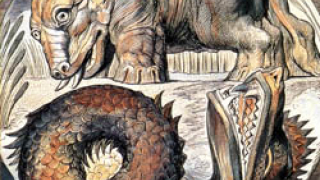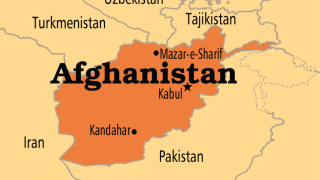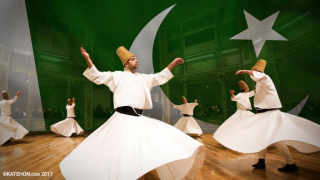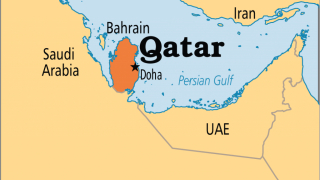Islamism vs. Islam
- Mr. Mutti we would like to discuss with you about phenomena of political islam and activity around it. Can you to make clear definition of it and how it works?
- The term “political Islam” has been coined by the French orientalist Oliver Roy in his book L'Echec de l'Islam politique (Le Seuil, Paris 1992). Oliver Roy names “political Islam” what another French orientalist, Gilles Kepel, calles “Islamism” (Le Prophиte et Pharaon. Aux sources des mouvements islamistes, Le Seuil, Paris 1984, revised edition 1993; Jihad : expansion et dйclin de l'islamisme, Gallimard, Paris 2000, revised edition 2003) and “radical Islam” (The roots of radical Islam, Saqi, London 2005). "Political Islam", "Islamism", "radical islam", just as "Islamic fundamentalism" and "Islamic integralism", are terms corresponding to modernist trends originated by the "Islamic reformers" and condemned as deviances by the representatives of traditional Islam. Nevertheless the western political language often makes a broad and incorrect use of these terms, mistaking Islamism for Islam and drawing conclusions conforming to the pattern of "clash of civilizations".
- How it manifested in E.U. and Near East? What is difference inside this movement?
- The so called "political Islam" is the result of Wahhabist and Salafist theories. Wahhabism draws its name from Muhammad ibn Abd al-Wahhab, who lived in the Arabic Peninsula in the XVIII century and, according to Henry Corbin, was "the father of Salafist movement through the centuries". The ideologic ancestor of Salafism was Jamal ad-din al-Afghani, who in 1883 founded the Salafiyyah society and in 1878 entered a free-masonic lodge in Cairo; his disciple and successor, Muhammad Abduh, also a free-mason, became the Egyptian Mufti in 1899 with the approval of British authorities. The main heir of these schools of thought is the movement of Muslim Brothers, founded in Egypt by Hasan al-Banna in 1928. Nowadays the Muslim Brothers are a polymorphic movement representing the pragmatic, realistic, political variant of the whole galaxy originated by Wahhabist-Salafist ideology. Therefore, the appellation of "Salafist" is usually given to maximalist movements and extremist groups, less disposed to the tactical compromises or practising paramilitary and terrorist activities.
- Islamism as radical view dealing with violence: how it incorporated with Islam, State and contemporary political actors?
- Remember that the English agent John Philby was the chief counsellor of King Ibn Saud, the usurper of the custody of the Holy Places, who made of the Wahhabist heresy the official ideology of Saudi Arabia. The Wahhabist kingdom, historical ally of Anglo-American imperialists, has generously financed and supported the Islamist groups. Now these groups have found another Wahhabist cashier, the Qatari Emir; housing Aljazeera and the regional seat of US Central Headquarters, Al-Thani is trying to adopt a role of leader in the Arab world and has become the main competitor of Saudi Arabia in the pro-American coalition. This way, who pays for the musicians, decides the music, which is after all an American music.
- Is it possible that may be organized alliance between extreme islamist groups and States? I mean no only example of Saudi Arabia, but also involvement of U.S. State Dept. in covert operations and moderation of Islam.
- Samuel Huntington writes that the true problem for United States is not the Islamic fundamentalism, but Islam in itself. Then, if Islam is the strategic enemy of US, the Islamic fundamentalism can be a tactical ally. This theory has been applied in Afghanistan, Balkans, Tchetchnia, Libya, Syria. As to the U.S. State Department, you can read in the CV of Abd al Wahid Pallavicini (A Sufi Master's Message, Milan 2011, p. 11) that it organizes courses for Muslim leaders at the Migration Policy Institute, in Washington. The purpose of these courses is to create Muslim leaders made in USA.
- Social unrest and muslim movements on Near East and Northern Africa - what is you analysis for it? Samir Amin thinks that it is old "Lunga Manus" of Capitalism that now works in new conditions of bazar-nets to combat leftist ideas of justice and so on.
- In the Muslim world the ideas of justice are not leftist, they are qur'anic. Since Islam is inconsistent with capitalism, the liberalists need a "reformed" Islam, which somebody has called an "Arabic version of calvinistic ethics". The executors of this project are the Wahhabist movements and all those who want "democratic reforms" in the Muslim world. The sponsors of this manipulation of Islam are the petromonarchies and the petroemirates in the Arabic Gulf; they are creating a Bank of Development of Middle East, which will loan to the Arabic countries to support their transition to democracy and will strengthen the chains of their debt. Meanwhile, in Egypt the Muslim Brothers have asked the International Monetary Found a loan of 3,2 billion dollars.
- By the way how about traditional Islam - from sufi orders to shia community, connected with Iran, Iraq, Lebanon, etc. Is it antidote for new postmodern Islam or also target group for newfounded sects and the West?
- In Arabic Peninsula and in Turkey, under the illusion that they could uproot Sufism, Wahhabists and Kemalists have banned the sufi orders. In Libya, in Tunisia, in Mali, Salafists and other Islamists have destroyed traditional worship places and Islamic libraries, just as it has happened in Mecca and in Medina under the Wahhabist occupation. Shia communities are persecuted by Wahhabist regimes, as in Bahrein. Heterodox groups and governments attack the traditional Islam in all its forms - Sunni and Shia indifferently - considering it as the strongest obstacle to their subversive action.
- And what about Israel? National Intelligence of U.S. predicts that Israel will not exist in next 30 years. Is there real threat from rise of Islam or U.S. will rearrange relation with this state as critical point in the important region?
- The new and ambitious American strategy, which Obama has inaugurated with his discourse in Cairo, wants to establish the US hegemony on Arab world and Middle East with the Arab consent. For this sake, it is necessary to mix the regional powers up in a large front against Iran, considered the main enemy in that zone; therefore the Arab states have to collaborate with the Zionist regime. The formers must pledge their support to the Zionist regime, which, in exchange, must accept the birth of an insignificant Palestinian entity.
- Besides that we also see good example of coexisting state and religion - as Indonesia with idea of the movement of moderates... How you think is it (ideas of fundamentalism with violence as external power) depended of region/ethnos, interpretations of Quran and fetwas or social prosperity?
- According to the islamic doctrine, politics is a part of religion; the State is founded on religion and has a religious purpose, so that, as Imam Khomeiny said, "to govern means to implement the qur'anic laws". As to the Muslim communities living in non-Islamic States, the duty of Muslim scholars is to find those solutions which, while corresponding to the Islamic laws, can facilitate the coexistence with non-Muslim people. In Europe, where the presence of a high number of Muslim people is a recent fact, this work is only at its beginning.
- What is your prognosis for near future - how movement of political Islam with it's all sides will be functioning and especially in E.U.?
- The anti-Islamic phenomenon called Islamism is dependent to a great extent from the Wahhabist regimes allied with United States. Therefore we can expect that "political Islam" will be used according to the requirements of US strategy; for example in Algeria, which very probably is the next target of the US-depending French sub-imperialism. Concerning European Union, the experience teaches us that US and Israeli intelligences are expert in the manipulation of extremist groups; therefore it is not unlikely that Salafist groups could be put in action in order to blackmail European governments.
Interviewed by Leonid Savin













